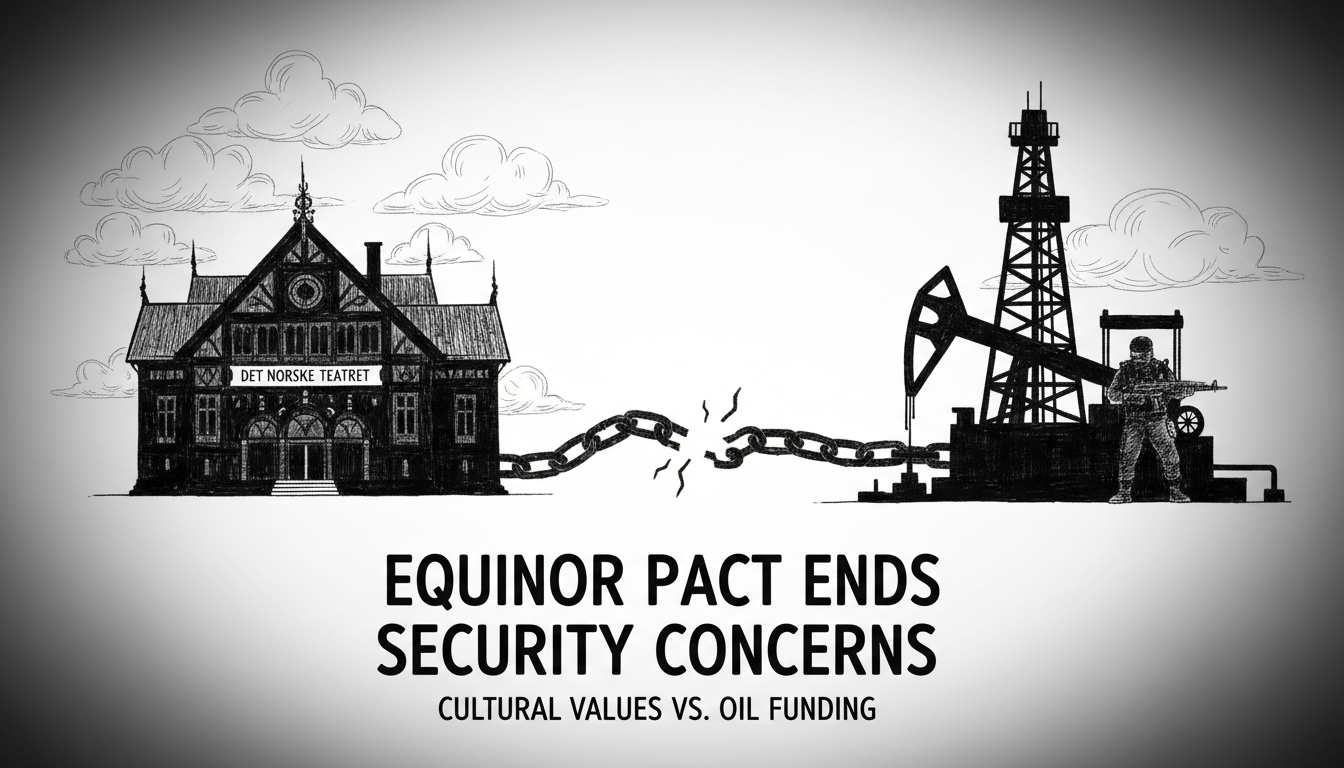The Norwegian Theater has severed its long-standing partnership with state energy giant Equinor. This decision comes from the theater's new artistic director who cited security concerns as the primary reason. Armed guards outside the cultural institution created an unacceptable environment for performers and visitors. The break affects both direct sponsorship and indirect funding streams that connect Norway's cultural sector to its petroleum revenues.
Equinor traditionally held its annual autumn conference at The Norwegian Theater's Oslo venue. This arrangement provided substantial rental income for the cultural institution over many years. More significantly, one quarter of the theater's state funding originates from Norway's Government Pension Fund Global. That massive wealth fund derives entirely from the country's oil and gas revenues.
The theater's decision reflects growing tension between Norway's cultural values and its economic foundations. Norway maintains the world's largest sovereign wealth fund while simultaneously pursuing ambitious climate goals. This creates inherent contradictions for cultural institutions receiving oil-derived funding. The security presence that prompted this decision stems from heightened protection for Equinor executives during events.
Norway's unique funding model for arts organizations means this decision carries financial consequences. Cultural institutions typically receive both direct state support and corporate sponsorship. The petroleum fund's distributions account for approximately 25% of government budget revenues. This means nearly all public spending, including culture, has some connection to fossil fuel extraction.
What does this mean for other cultural institutions facing similar dilemmas? The Norwegian Theater's move may inspire other organizations to reconsider their funding sources. Norway's cultural sector has debated oil money for years as climate concerns grow. This decision represents the most concrete action yet in that ongoing discussion.
The break comes as Norway faces international pressure regarding its Arctic oil exploration. New licensing rounds in the Barents Sea continue drawing criticism from environmental groups. The country's parliament recently debated additional petroleum exploration while committing to reduce emissions. These competing priorities create complex challenges for institutions navigating both funding and ethical considerations.
Norwegian cultural policy has long embraced state support while allowing artistic independence. This decision tests that balance as institutions weigh financial stability against ethical positions. The theater's leadership made a clear statement about security priorities over economic benefits. Other cultural organizations will now watch how this decision affects both funding and public perception.
The practical implications extend beyond immediate financial impact. Equinor will need to find alternative venues for its corporate events. The theater must identify replacement income sources during challenging economic times. This situation demonstrates how Norway's transition from oil dependency affects multiple sectors simultaneously.

